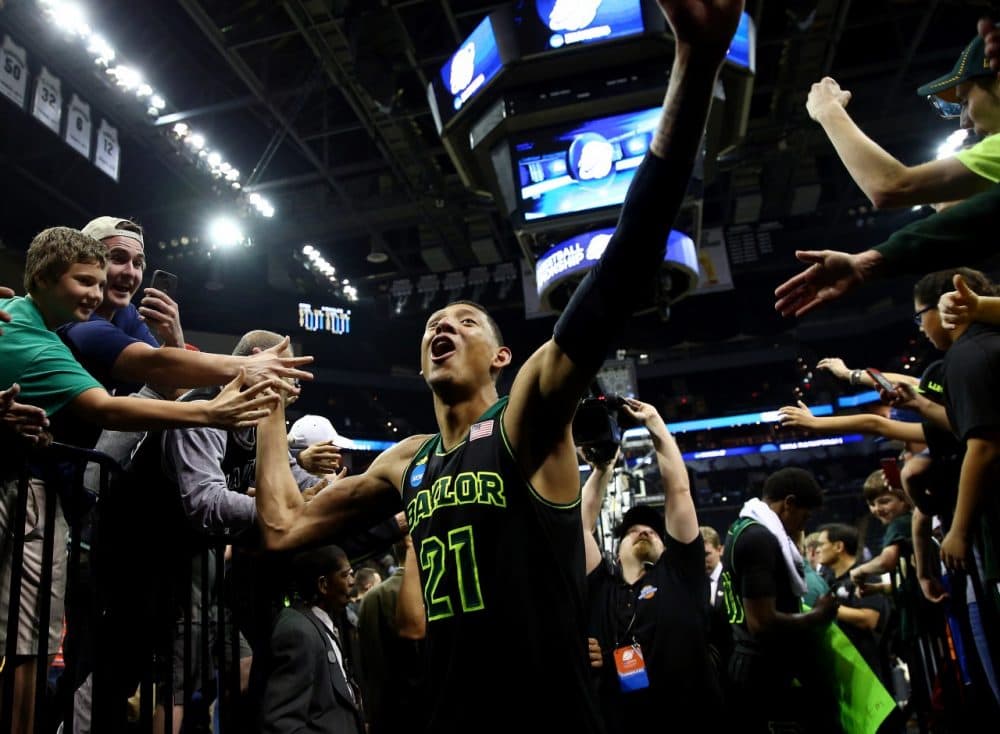Advertisement
March Madness, Money Madness
Resume
We live in a land where people care enough about college basketball to have made of that entertainment product a $1-billion industry. Folks can complain about that, or about the hypocrisy inherent in the term "student-athlete," but the caring and the money are facts.
[sidebar title="A New Lawsuit Against The NCAA" width="330" align="right"]In a new lawsuit, sports labor attorney Jeffrey Kessler claims NCAA member universities are acting as a cartel. Sports Illustrated legal expert - and regular OAG guest - Michael McCann joined us to make sense of the case.[/sidebar]The college sports industry is fueled by television, so the players and their coaches are television stars, though only the coaches are paid as such. Among the industry's revenue sources is beer, never mind that lots of the industry's stars are too young to drink legally. The revenue also comes from companies that sell trucks, and companies that sell insurance, and the television networks themselves, which sell programs. During the NCAA men's basketball tournament, the audience for the advertising is enormous.
That's one reason the NCAA tournament generates so much money. The other reason is that college chancellors, presidents, and boards of trustees believe that having a team in the tournament will raise the profiles of their institutions in a positive way. Sincere people can argue about whether they're right, but what matters is that they believe it. So they pay coaches tens of millions of dollars and give them the authority to yank scholarships out from under 19-year-old "student-athlete" point guards and power forwards who don't live up to the coaches' expectations, regardless of their grade-point averages.
Some players fortunate enough to retain their scholarships acquire an education, but an awful lot of them don't, because attempting to do so would interfere with the job they have been hired - for no actual money - to do, which is play basketball.
The NCAA, which oversees this system, is under attack via several lawsuits. This is a hopeful sign.
The lawsuits would go away if everybody involved could agree that young men brought to a college to play basketball should be paid based on hours spent in the gym, on the road, in the weight room, and in team meetings. And what if they could also agree that after they were no longer eligible to play basketball, said young men should be entitled to pursue without cost for a time whatever academic interests they might have at the institutions that hired them? And, further, that, like Michael Jordan, they must be compensated for the use of their names or likenesses in commercial enterprises?
Ah, well … during March Madness, dreams of long shots abound.
This segment aired on March 26, 2014.
